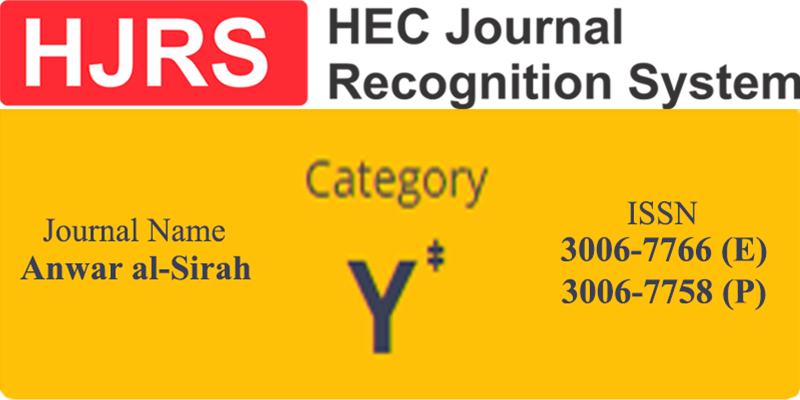اخوت ومساوات نبوی تعلیمات کے تناظر میں
Brotherhood and Equality in the Context of Prophetic Teachings
DOI:
https://doi.org/10.5281/zenodo.11312820Keywords:
Brotherhood, Global Community, Equality, Diversity, Piety, Prophetic TeachingsAbstract
Islam, as a religion, emphasizes peace, security, and offers a comprehensive framework for life. Central to its teachings is the promotion of mutual love and brotherhood among its adherents. The Holy Qur'an underscores this principle by stating, 'Verily, all believers are brothers, so make peace among your brothers. And fear Allah so that you may be shown mercy.' (Al-Hujurat 49:10) This verse serves to unite Muslims globally under a common bond, where each individual is regarded as a brother or sister to one another. Beyond the confines of Islam, such a profound sense of brotherhood is seldom found in other religious or social contexts. Additionally, Islam advocates for justice and equality, emphasizing the importance of treating all individuals with fairness and respect. The Prophet Muhammad (peace be upon him) encapsulated this concept in his farewell sermon, stating, 'O people, beware! Indeed, your Lord is one and your father is also one. Beware, an Arab has no superiority over a non-Arab, nor a non-Arab over an Arab; a white person has no superiority over a black person, nor does a black person have superiority over a white person, except by piety.' Given the significance of these teachings, this paper aims to explore the themes of brotherhood and equality within the context of Prophetic guidance from various perspectives.
Downloads
Published
How to Cite
Issue
Section
License
Copyright (c) 2023 Mr. Masoom Saddiqui

This work is licensed under a Creative Commons Attribution-NonCommercial 4.0 International License.
Copyrights of all research papers published in Journal of the 'ANWĀR AL-SĪRAH are held by the auther(s). However, as the 'ANWĀR AL-SĪRAH follows Open Access Policy under license CC by NC for global exchange of knowledge, readers are freely allowed to download, read and print the full text papers of 'ANWĀR AL-SĪRAH without prior permission from the 'ANWĀR AL-SĪRAH or the author(s) as long as they acknowledge/cite the 'ANWĀR AL-SĪRAH as the original source.


